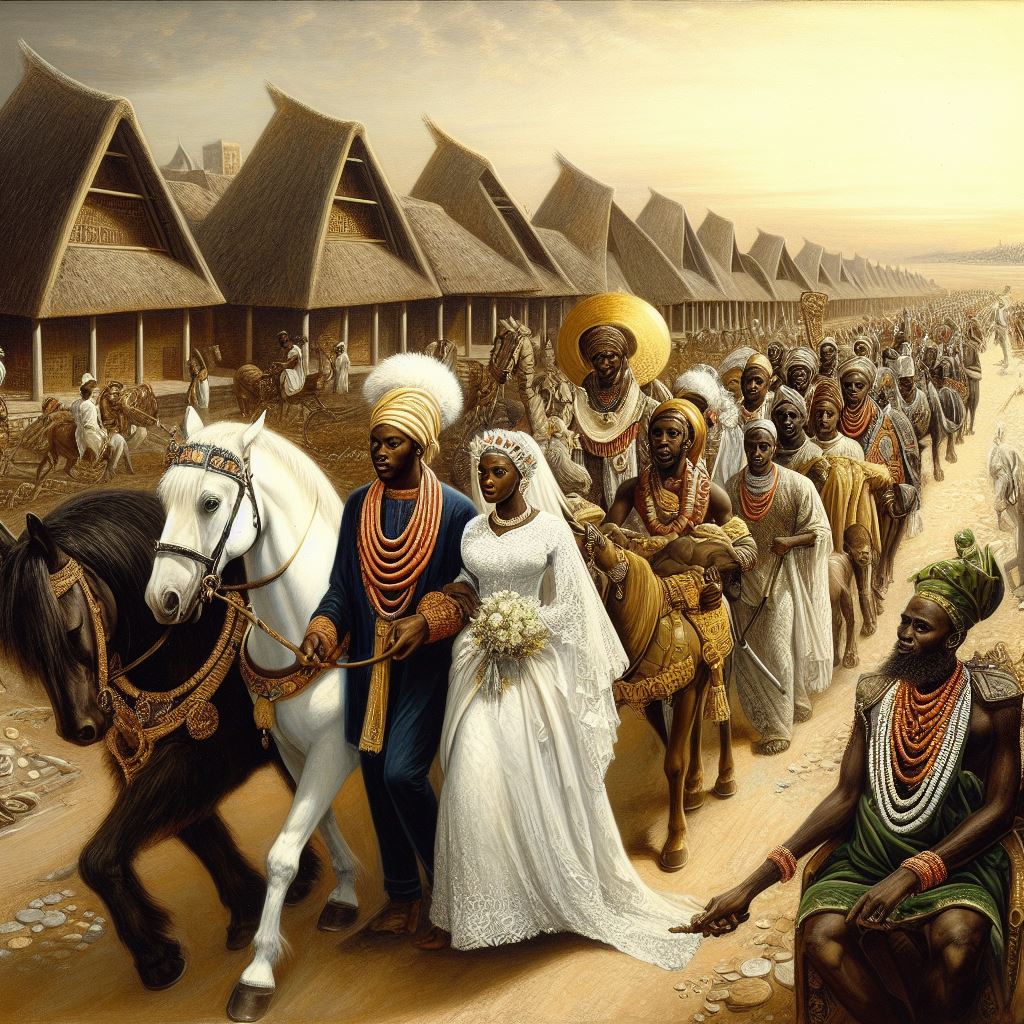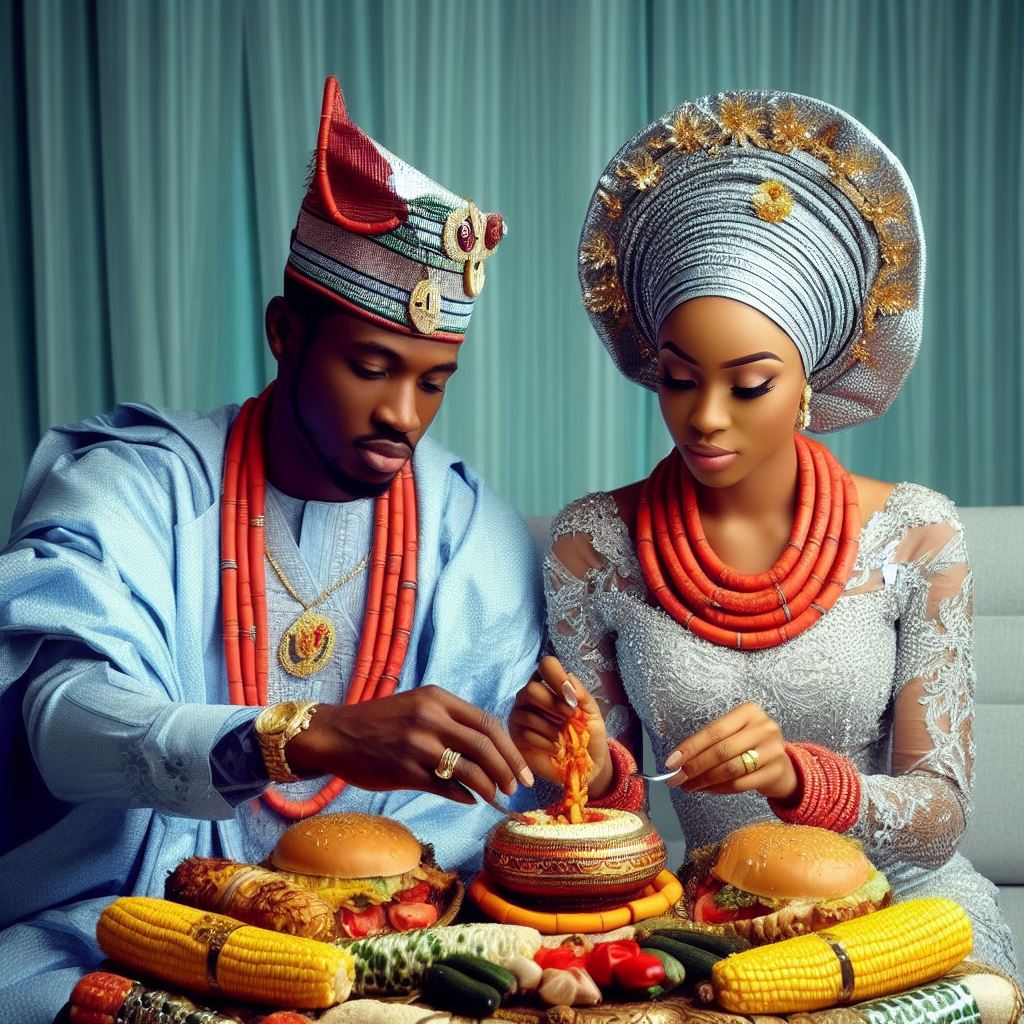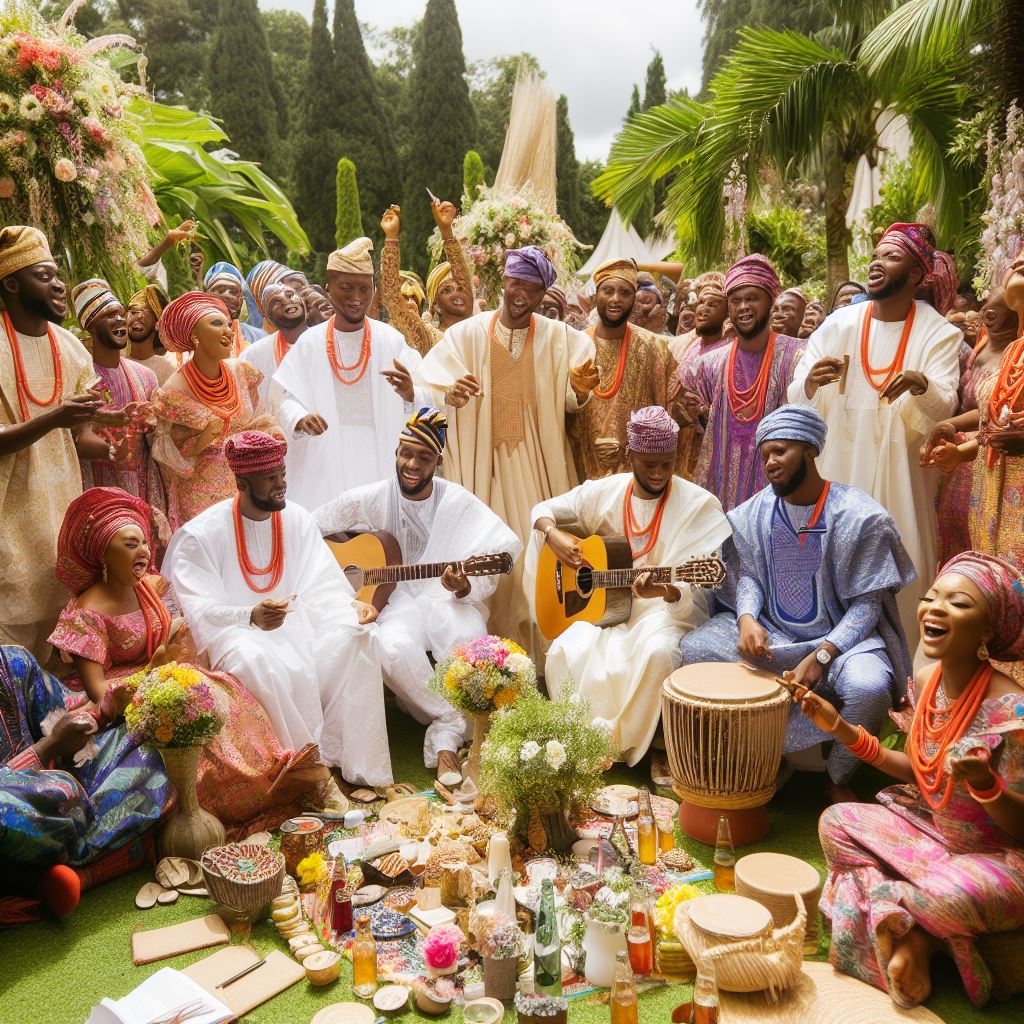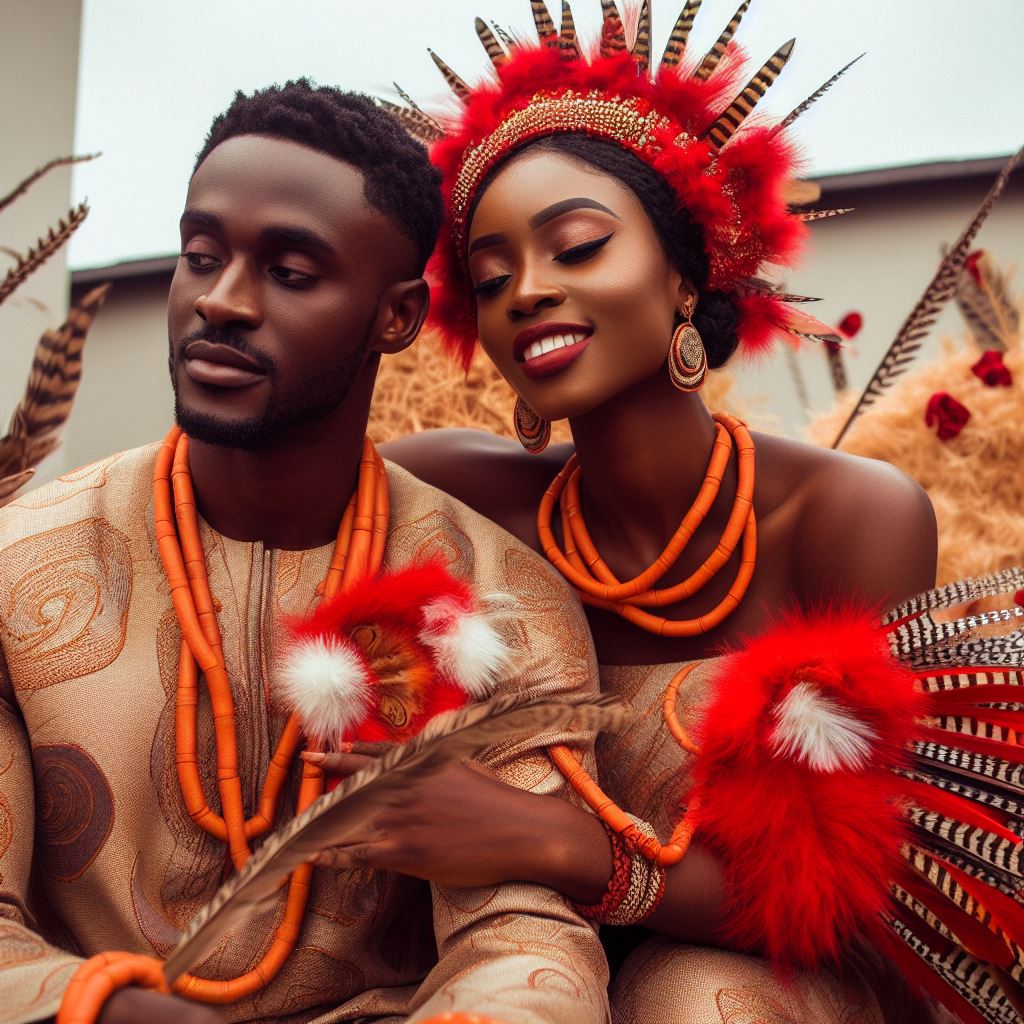Introduction
The significance of marriage in Nigerian culture
Marriage holds immense importance in Nigerian culture, reflecting the deep-rooted beliefs and values of its people and Nigerians marriage is honourable.
Nigerians firmly believe that marriage is a sacred bond, deserving of honor and respect.
This sentiment stems from various cultural, religious, and societal factors that contribute to their strong affinity towards marital bonds.
Background information on the topic
In Nigerian society, marriage is not just seen as a union between two individuals but as a merging of families and communities.
It serves as a means of strengthening social ties and promoting unity.
Additionally, Nigerians view marriage as a pathway to procreation and continuation of lineage, an important aspect of their cultural heritage.
Religion plays a significant role in shaping Nigerians’ perception of marriage.
With the majority of the population being devoutly religious, the sanctity of marriage is emphasized in various religious teachings.
The holy texts of Christianity and Islam, which are the dominant religions in Nigeria, extol the virtues of marital commitment and encourage believers to honor their marital vows.
Furthermore, societal expectations and cultural norms also contribute to Nigerians’ high regard for marriage.
The concept of family is deeply ingrained in Nigerian society, and marriage is considered essential for the stability and well-being of the family unit.
Nigerians view marriage as a way to establish a sense of belonging, security, and companionship, leading to a fulfilling and happy life.
Nigerians cherish marital bonds because they believe marriage is honourable
In essence, Nigerians hold marriage in high esteem because they believe it is an honorable institution.
The cultural, religious, and societal factors that underpin this belief shape their perception of marriage as a sacred bond deserving of reverence.
By cherishing marital bonds, Nigerians aim to foster strong families and communities, ensuring the preservation of their cultural heritage.
Historical and Cultural Context of Marriage in Nigeria
Traditional customs and values surrounding marriage
- Marriage is deeply rooted in Nigerian societies, with diverse ethnic groups having their unique customs.
- Bride price, a form of dowry, is prevalent in many Nigerian cultures, symbolizing the union of families.
- Traditional marriage ceremonies are elaborate events that involve the entire community, emphasizing the importance of unity.
- Polygamy was once widely practiced, reflecting the value placed on large families and continuity.
- Marital arrangements were often decided by parents, emphasizing the role of family and community in ensuring compatibility.
Importance of marriage for Nigerians
- Marriage is considered a fundamental institution that promotes stability and social cohesion.
- It provides a sense of identity, belonging, and fulfillment, contributing to personal and societal well-being.
- Marital bonds are seen as a source of emotional support, companionship, and resilience in times of adversity.
- Through marriage, Nigerians strive to establish a legacy and secure the continuation of their lineage.
- Married individuals are often accorded higher social status and respect within their communities.
Influence of religion and societal norms on marital beliefs
- Religion, predominantly Christianity and Islam, plays a significant role in shaping Nigerian marital beliefs.
- Both religions emphasize the sanctity of marriage and the importance of fidelity and commitment.
- Religious institutions provide guidance and counseling on marital issues, strengthening marital bonds.
- Societal norms reinforce the belief that people should cherish and honor marriage as a lifelong commitment.
- Society usually stigmatizes divorce, and it encourages couples to seek reconciliation and uphold the unity of the family.
In fact, traditional customs, values, and religious beliefs deeply intertwine with the historical and cultural context of marriage in Nigeria.
People value marriage for its role in promoting social cohesion, personal fulfillment, and the continuation of lineage.
Both Christianity and Islam, the dominant religions, emphasize the sanctity of marriage and the importance of commitment.
Overall, Nigerians hold marriage in high regard, considering it a cherished and honorable institution.
Marriage as a Symbol of Status and Respect
The perception of marriage as a milestone achievement
In Nigerian society, people view marriage as a significant accomplishment that signifies their transition into adulthood and maturity.
The belief is that successfully entering into a lifelong union demonstrates one’s ability to fulfill societal expectations.
People consider getting married an achievement that brings joy, respect, and a sense of fulfillment to individuals and their families.
It signifies personal growth, stability, and the ability to establish a family of one’s own.B. Social validation and acceptance through marriage
Social validation and acceptance through marriage
In Nigeria, people also view marriage as a means to achieve social recognition and acceptance.
Many people equate being married with displaying responsibility, reliability, and trustworthiness.
The society tends to view married individuals as more respectable and worthy of honor.
This pressure to conform and gain acceptance can lead people to prioritize getting married, to ensure their place within the community.
Older generations passing down the belief in the honor of marriage
The belief that marriage is honorable is often instilled from a young age by older generations.
Parents and grandparents pass down the value and importance of marriage to younger family members.
They emphasize the significance of marital bonds and the honor that comes with it.
This transmission of beliefs solidifies the perception that marriage is not merely a personal choice but a cultural tradition.
The perception of marriage as a milestone achievement is deeply ingrained in Nigerian society.
It is seen as a symbol of maturity, responsibility, and fulfillment.
This perception can create a strong desire among individuals to pursue marriage as a way to validate their societal status.
Getting married also brings social recognition and acceptance, as it aligns with the community’s expectations.
People feel a sense of honor and respect when they are seen as responsible and reliable adults.
Marriage serves as a public declaration of commitment and loyalty, reinforcing one’s status in society.
The belief in the sanctity of marriage is passed down through the generations, creating a cultural norm that upholds its honor.
This cultural transmission perpetuates the idea that marriage is a sacred union that deserves respect and admiration.
Generally, Nigerians believe that marriage is honorable due to various reasons.
Firstly, it is seen as a milestone achievement that represents personal growth and the ability to fulfill societal expectations.
Secondly, marriage provides social validation and acceptance, making individuals more respectable in the eyes of the community.
Finally, the belief in the honor of marriage is passed down by older generations, solidifying its significance in Nigerian culture.
These factors contribute to the strong emphasis on cherishing marital bonds in Nigerian society.
Marriage as a Foundation for Family and Community
Role of marriage in establishing and maintaining familial ties
- Marriage serves as the cornerstone for building strong family bonds and connections.
- It provides a framework for starting a family and raising children in a stable environment.
- Through marriage, individuals establish bloodlines, inherit traditions, and create a sense of belonging.
- It allows for the formation of extended families, strengthening the ties between relatives.
- Marriage plays a fundamental role in passing down cultural values and preserving family legacies.
The belief in marriage as a source of stability and unity
- Nigerians firmly believe that marriage brings stability and a sense of rootedness to individuals.
- It creates a foundation for emotional support, mutual growth, and fostering a deeper connection.
- In marriage, couples navigate life’s challenges and share burdens, which strengthens their bond.
- Believing in the sanctity of marriage encourages couples to overcome difficulties together.
- This belief in marital stability fosters harmony and unity within Nigerian society.
Contributions of married couples to the community and society
- Married couples make significant contributions to the community and society at large.
- They serve as role models for younger generations, showcasing the importance of commitment.
- Stable marriages create a positive ripple effect, promoting healthier relationships in the community.
- Married individuals often engage in community-building activities and charitable works.
- Through their stable relationships, they raise well-adjusted children who contribute positively to society.
People in Nigeria essentially consider marriage “honourable” because it plays a multifaceted role in establishing familial ties, providing stability and unity, and contributing to the community and society.
It serves as the foundation for building strong family connections, passing down cultural values, and preserving legacies.
The belief in the sanctity of marriage fosters emotional support, mutual growth, and the ability to overcome challenges together.
Additionally, married couples serve as role models, promoting commitment and establishing healthier relationships within the community.
Their contributions extend beyond their own families, as they engage in community-building activities and raise well-adjusted children who positively impact society.
Thus, Nigerians cherish marital bonds for the significant impact they have on individuals, families, and the wider community.
Read: Marriage is Honourable: The Socio-Economic Implications in Nigeria
Cultural Significance of Weddings and Celebratory Traditions
Elaborate traditional wedding ceremonies and rituals
- Nigerians host grand and culturally rich weddings, which reflect the diversity of their nation.
- Different ethnic groups have unique wedding traditions, such as the Yoruba’s engagement ceremony called “Introduction” or the Igbo’s “Igba Nkwu.”
- These ceremonies often involve elaborate preparations, including traditional attire, music, dances, and feasts.
- Family and community members actively participate, making weddings a collective celebration and a way to strengthen bonds.
- Traditional rituals like the exchange of gifts, pouring of libations, and parental blessings are integral parts of the ceremonies.
Symbolism behind wedding customs
- Aspects of Nigerian wedding customs hold deep symbolic meanings that emphasize the importance of marriage.
- The use of kola nuts signifies hospitality and unity, as breaking and sharing them symbolizes unity between families.
- Pouring of palm wine signifies fertility and abundance, reflecting the desire for a fruitful union.
- Traditional dances, like the Igbo’s “Akwa Ocha” or Yoruba’s “Bata,” represent joy, love, and the couples’ willingness to merge with each other’s families.
- The tying of coral beads or the exchange of traditional wedding rings symbolizes the everlasting bond and commitment.
Reinforcement of the belief that marriage is honourable
- Nigerian wedding customs serve as a reminder of the societal value placed on marriage as an honorable institution.
- By adhering to and celebrating these traditions, Nigerians reinforce the importance of commitment and lifelong partnership.
- The massive celebrations surrounding weddings create a sense of pride and honor for the couple and their families.
- Communities view weddings as an opportunity to showcase their cultural heritage, reinforcing the belief that marriage is a sacred bond.
- Traditional weddings also serve as a platform for passing down cultural values, customs, and traditions to younger generations.
Overall, Nigerian weddings and celebratory traditions hold immense cultural significance by showcasing the country’s rich heritage
Emphasizing the symbolic meanings behind customs, and reinforcing the belief that marriage is a noble institution.
These elaborate ceremonies and rituals not only celebrate the union of two individuals but also strengthen family and community bonds.
Through the continuation of these traditions, Nigerians cherish and preserve the cultural significance of marriage, deeming it as a truly honorable commitment.
Read: Building Financial Synergy in Nigerian Marital Homes
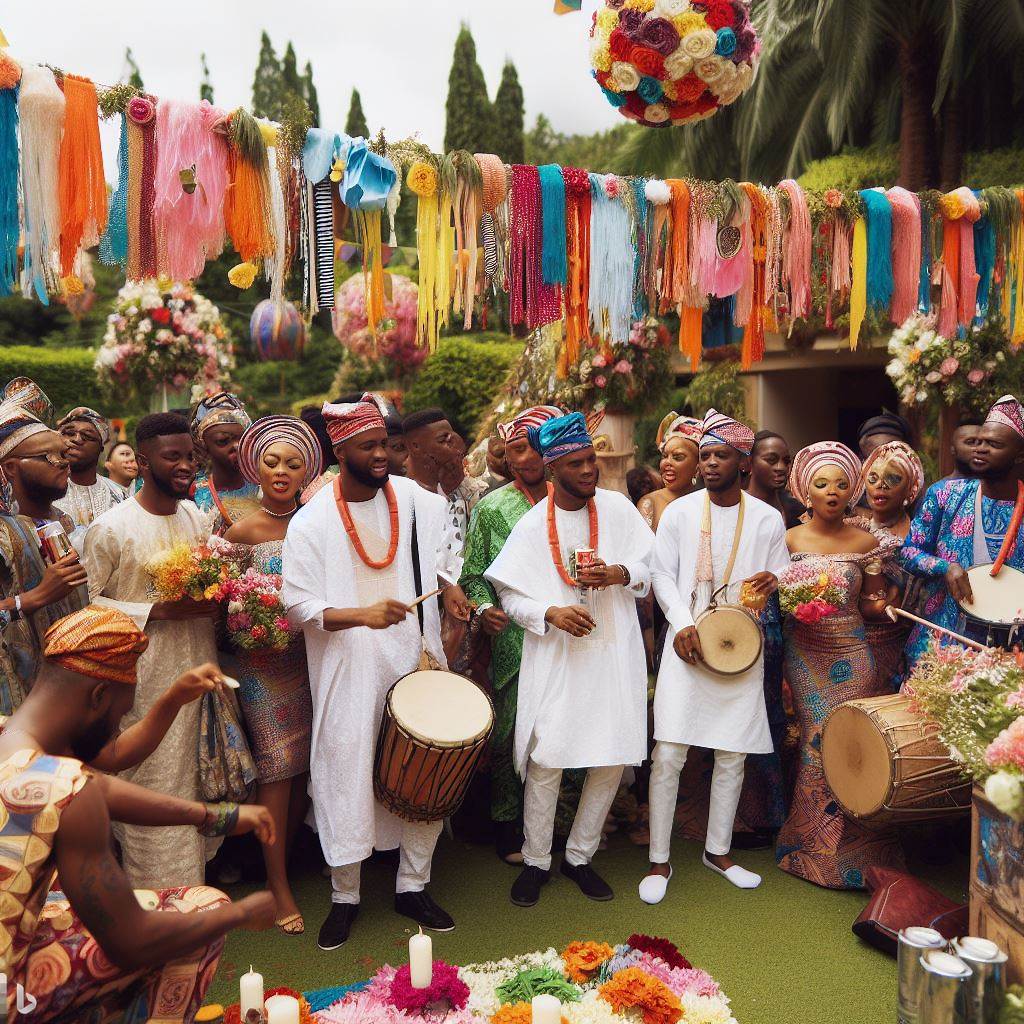
Commitment, Trust, and Endurance in Marital Bonds
The importance of commitment in Nigerian marriages
- People view commitment as the foundation of a successful Nigerian marriage
- Nigerians believe that commitment means staying faithful and dedicated to one’s spouse.
- This commitment extends beyond the initial wedding vows and is a lifelong promise.
- We encourage Nigerian couples to weather the storms together and find solutions to challenges.
- By staying committed, spouses show loyalty and strengthen their bond.
Trust-building and maintenance within the marital relationship
- Trust is a vital element in Nigerian marriages, and it requires constant effort to build and maintain.
- Honesty, transparency, and open communication are essential in establishing trust.
- Spouses in Nigeria understand the importance of trust in fostering a harmonious marital relationship.
- Trust allows couples to rely on each other and feel secure in their commitment.
- Through trust, couples can share their joys, fears, and vulnerabilities without fear of judgment.
The belief in the strength and endurance of marital bonds
- Nigerians firmly believe that marriage is a sacred union that should last a lifetime.
- Marital bonds are seen as an unbreakable connection between two individuals.
- During challenging times, Nigerians emphasize the importance of endurance in marriage.
- Couples are encouraged to persevere, adapt, and find solutions to maintain their bond.
- Through their endurance, Nigerian couples believe they grow stronger and deepen their love for each other.
The commitment, trust, and endurance within Nigerian marriages are highly valued and believed to be the key factors in fostering successful and long-lasting relationships.
Nigerian couples understand that commitment goes beyond the wedding ceremony and entails unwavering dedication to their spouse.
They view trust-building and maintenance as essential for creating a secure and open environment where both partners can express themselves freely.
Additionally, the belief in the strength and endurance of marital bonds allows Nigerian couples to navigate challenges and grow closer in the process.
Read: Marriage is Honourable: The Socio-Economic Implications in Nigeria
Challenges and Changes in Contemporary Nigerian Marriages
Influence of modernization and globalization on marital values
- Modernization and globalization have brought new ideas and perspectives to Nigerian society.
- Traditional values regarding the honor of marriage have been challenged and questioned.
- Increased exposure to different cultures and lifestyles has influenced Nigerian marital values.
- Western ideals of individualism and independence have permeated Nigerian society, affecting marital dynamics.
- The emphasis on personal fulfillment and happiness has shifted the focus away from the honor of marriage.
Shifting gender roles and expectations affecting marital dynamics
- Nigerian society is experiencing a gradual but significant shift in traditional gender roles.
- Increasingly, women seek education, careers, and financial independence before they get married.
- Traditional gender expectations of women as homemakers and men as breadwinners are being challenged.
- This shift has caused a disruption in marital dynamics, leading to conflicts and tensions within marriages.
- Men are now expected to share household responsibilities and contribute to childcare and domestic chores.
- These changing gender roles have resulted in a redefinition of marital duties and responsibilities.
Response to challenges and the continued belief in the honour of marriage
- Despite the challenges and changes, Nigerians continue to believe in the honor of marriage.
- Community and family support play a crucial role in preserving the belief in the sanctity of marriage.
- Religious institutions provide guidance and emphasize the importance of honoring marital commitments.
- People still see marriage as a social institution that strengthens family ties and contributes to societal stability.
- Couples are adapting to the changing environment by redefining their expectations and roles within marriage.
- Dialogue, compromise, and open communication have become essential tools in navigating contemporary challenges.
Basically, contemporary Nigerian marriages face various challenges due to the influence of modernization, globalization, and shifting gender roles.
People have questioned traditional values of marital honor, and expectations have evolved.
However, Nigerians continue to believe in the honor of marriage, with community and religious support playing a significant role in preserving this belief.
Couples are adapting and redefining their roles to navigate the changing dynamics.
By embracing dialogue and compromise, Nigerian marriages can overcome these challenges and maintain their sacredness.
Read: Marriage is Honourable: Understanding its Roots in Nigerian Culture
Conclusion
Recap of the importance of marriage to Nigerians
Nigerians consider marriage as a highly honorable institution, viewing it as the bedrock of societal stability, the guardian of cultural heritage, and the path to personal contentment.
This esteemed institution plays a pivotal role in Nigerian society, nurturing robust family ties and bolstering social harmony.
It also serves as a cornerstone for economic sustenance and the perpetuation of cultural traditions.
In addition, marriage imparts a profound sense of belonging, emotional assurance, and fulfills both religious and ancestral commitments.
Furthermore, it stands as a crucial conduit for procreation and the transmission of cherished cultural norms.
All in all, “Nigerians Marriage is Honourable” remains an integral and revered facet of Nigerian life, molding their identity, ethics, and societal fabric.
Nigerians cherish marital bonds because they believe marriage is honourable
Nigerians deeply cherish the phrase “Marriage is Honourable,” which emphasizes the sanctity of marital unions in Nigerian culture.
They ingrain this conviction in their cultural values and traditions, where they prioritize family, stability, and unity.
In their society, the belief in the honourability of marriage fosters resilience and tight-knit communities.
Closing thoughts on the enduring significance of marriage in Nigerian society
In Nigeria, Nigerians Marriage is Honourable plays a vital role, providing couples with emotional support, financial security, and a sense of belonging.
Nigerians Marriage is Honourable fosters unity, societal progress, and the passing down of traditions and values from one generation to another.
In Nigerian society, Nigerians Marriage is Honourable remains a cornerstone, fostering social bonds, cultural preservation, and economic stability.
Nigerians Marriage is Honourable strengthens familial ties. It also upholds cultural traditions, ensuring their longevity.
Economically, Nigerians Marriage is Honourable provides a stable foundation for individuals and communities. In this context, Nigerians Marriage is Honourable’s enduring significance is evident.
It’s not merely a personal choice; it’s a societal institution. Nigerians Marriage is Honourable bolsters social cohesion and individual prosperity.
This time-tested tradition continues to shape Nigerian society profoundly.
Nigerians honor marriage, considering it a significant part of their culture, and they view it as a bond that brings honor and strengthens individuals and society at large.
It is a cherished institution that continues to shape and define Nigerian identity and values.

